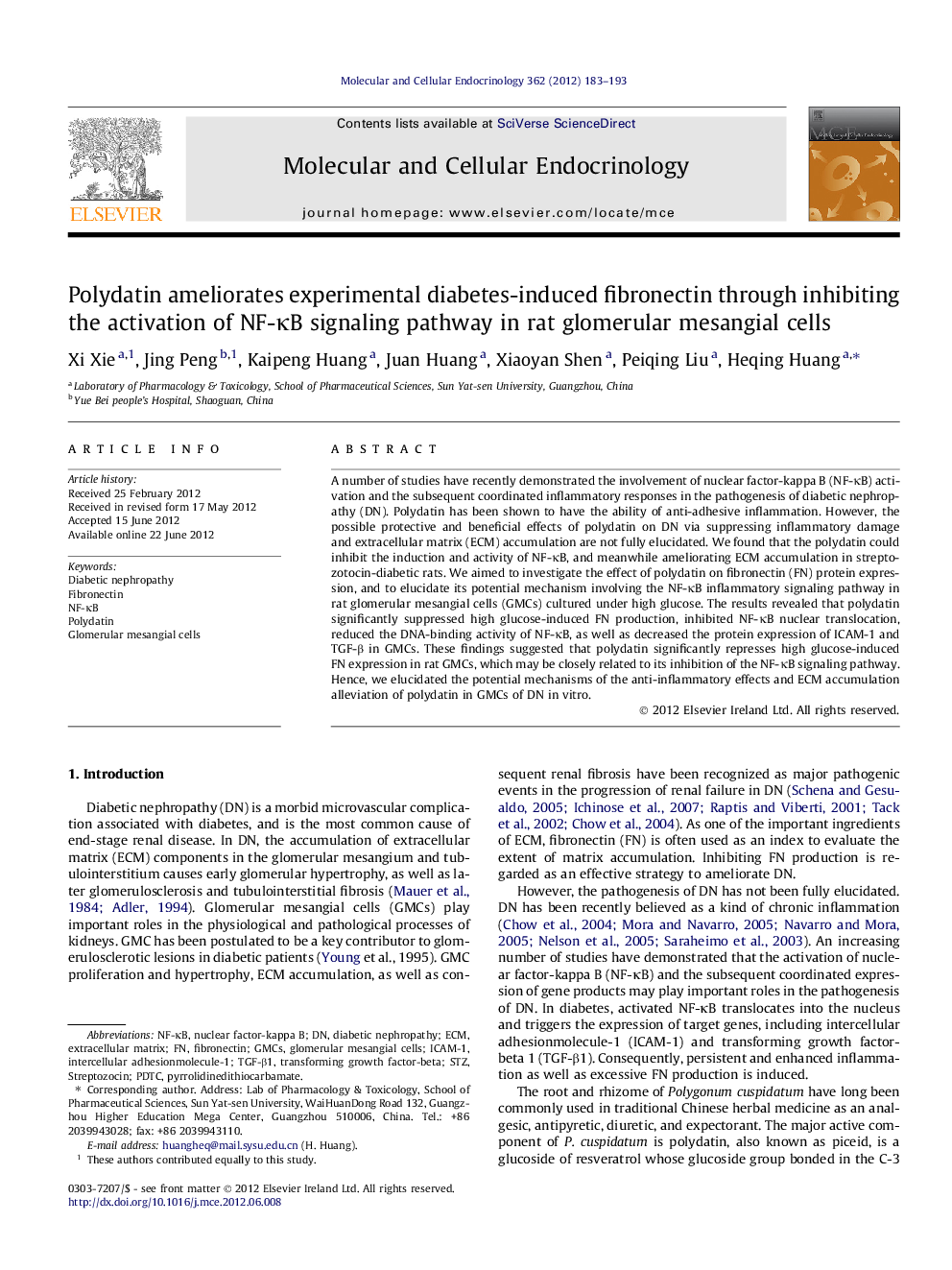| Article ID | Journal | Published Year | Pages | File Type |
|---|---|---|---|---|
| 2196290 | Molecular and Cellular Endocrinology | 2012 | 11 Pages |
A number of studies have recently demonstrated the involvement of nuclear factor-kappa B (NF-κB) activation and the subsequent coordinated inflammatory responses in the pathogenesis of diabetic nephropathy (DN). Polydatin has been shown to have the ability of anti-adhesive inflammation. However, the possible protective and beneficial effects of polydatin on DN via suppressing inflammatory damage and extracellular matrix (ECM) accumulation are not fully elucidated. We found that the polydatin could inhibit the induction and activity of NF-κB, and meanwhile ameliorating ECM accumulation in streptozotocin-diabetic rats. We aimed to investigate the effect of polydatin on fibronectin (FN) protein expression, and to elucidate its potential mechanism involving the NF-κB inflammatory signaling pathway in rat glomerular mesangial cells (GMCs) cultured under high glucose. The results revealed that polydatin significantly suppressed high glucose-induced FN production, inhibited NF-κB nuclear translocation, reduced the DNA-binding activity of NF-κB, as well as decreased the protein expression of ICAM-1 and TGF-β in GMCs. These findings suggested that polydatin significantly represses high glucose-induced FN expression in rat GMCs, which may be closely related to its inhibition of the NF-κB signaling pathway. Hence, we elucidated the potential mechanisms of the anti-inflammatory effects and ECM accumulation alleviation of polydatin in GMCs of DN in vitro.
► Polydatin ameliorated the metabolic parameters in STZ-induced diabetic rats. ► We explored the connection between inflammation and accumulation of ECM in DN. ► Polydatin would be a potential therapy for diabetic nephropathy.
